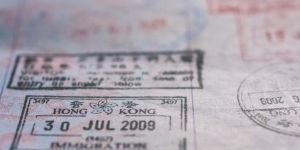Hong Kong is China's biggest and most densely populated special administrative region and one of its most prosperous cities. The city's name is literally translated as 'fragrant harbor', a tribute to the once-lucrative wood and incense trade in the region. To this day, the city has remained one of the world's most important trade centers.
Geography of Hong Kong
Stretching over some 1,100 km², Hong Kong is divided into three major areas, namely the Southern Island (only 10% of the region's territory but its political and economic heart, 80.68 sq km), Kowloon (a large residential area located right opposite Southern Island, 46.94 sq km) and the New Territories (comprising mostly wetlands, parks and mountains and accounting for more than 80% of Hong Kong's total surface area).
In political terms, Hong Kong consists of 18 districts, each of which has its own council. However, these councils do not really have political power.
Population and languages in Hong Kong
As China's 5th urban area, Hong Kong is one of the world's most densely populated territories with over 7.37 million people (with a population density of over 7050 people per square kilometer), with Kowloon being the most populated area of the region. Despite the city's large population, Hong Kong's unemployment rate is relatively low at 3.2%.
Hong Kong is one of the most popular expat destinations in Asia, with its expat population estimated to have reached over 700,000 people in 2022. Foreign residents come from Malaysia, Japan, the US, Britain, Australia, Singapore and Portugal, with Indonesia taking the number one spot in the number of expats residing in the city.
Chinese and English are the two official languages of Hong Kong. However, a southern version of Chinese, Cantonese, is actually spoken by the residents. Hong Kong also uses traditional spelling, as opposed to Simplified Chinese used in Mainland China. English is taught in schools and universities, and the bilingual policy also applies to displays, including road traffic signs, subtitles at the cinema hall, etc., thanks to the government's emphasis on the development of English language skills.
Hong Kong's economy
Hong Kong is Mainland China's most prosperous city and one of the world's biggest financial hubs (the city is home to 195 authorized financial institutions and 57 offices of international banks). The city has ranked 23 times in a row as the world's freest economy and, for the second year running, has been named the world's most competitive economy in 2017. The city's economic success relies on fair market competition, the government's minimum intervention policy, support of small businesses, low taxation, favorable geographic position, cultural openness and a number of other factors.
Hong Kong's maritime trade was the first field to experience development, but other fields, such as textiles, services and industry, have also evolved rapidly.
The city's economy relies, to a large extent, on foreign exchanges as well as tourism which is becoming more and more significant. Its main competitors are, namely, Singapore and Shanghai. Note that Hong Kong's official currency is the Hong Kong dollar (HKD).
The climate in Hong Kong
Hong Kong experiences a subtropical climate. Winter lasts for two months only, that is, from January to February. The weather is rather dry and cloudy, but it barely rains. Temperatures, for their part, range between 13°C and 22°C. Then come spring and summer, from March to October, with warm and humid temperatures ranging between 17°C and 31°C. March to April are generally quite pleasant. However, occasional spells of high humidity and heavy fog can cause delays in air traffic and ferry services. May to August are the months characterized by the highest humidity with more frequent showers and thunderstorms. However, July brings in a dry spell, which can last for several weeks. July through September are often affected by cyclones. Finally, autumn, which lasts from October to December, is considered to be the most pleasant season, with sunny weather and mild temperatures ranging between 15°C and 30°C.
Important:
Due to its geographical location, Hong Kong is often affected by tropical typhoons. On average, about 30 cyclones affect the region every year.
Good to know:
The best time to visit Hong Kong is March to April and October through November.
Hong Kong holidays
Hong Kong celebrates similar holidays to Mainland China; however, there are a few differences. Office holidays in Hong Kong are generally shorter than those in China, and the city also celebrates a lot of traditional western holidays like Christmas, Boxing Day, Easter, and others. Some of the major holidays in Hong Kong include the Spring Festival (1st day of the 1st lunar month), Ching Ming Festival (April 4th ), Labour Day (May 1st), Dragon Boat Festival (May 30th), The Buddhas Birthday (May 3rd) and others.
Politics in Hong Kong
Hong Kong's political system consists of a legislative assembly that elects a chief executive or a head of the government. The latter is first named by the Chinese President of the Republic. Hong Kong also has a parliament and a legislative council named LEGCO.
The legal and judiciary system is also different from that of mainland China. In fact, Hong Kong has preserved its common law system as established during the British colonization period, and it is not answerable to the Chinese national laws.
Cultural diversity in Kong Kong
Cultural diversity is one of the main factors attracting foreigners to the region. Having been under British rule from 1841 to 1997, Hong Kong is a vibrant mix of cultures, and its diversity can be experienced in all spheres of life, whether in economic, linguistic, or religious terms.
We do our best to provide accurate and up to date information. However, if you have noticed any inaccuracies in this article, please let us know in the comments section below.








